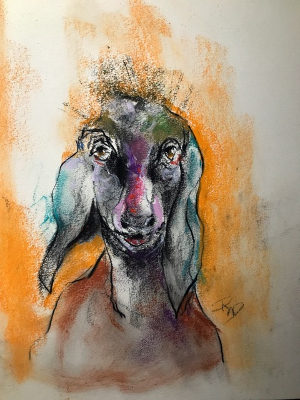by Rich Panico
Hard to hold down,
nimble,
alighting wherever it likes:
the mind.
Its taming is good.
The mind well-tamed
brings ease.
For a person of unsteady mind,
not knowing true Existence (Dhamma),
serenity set adrift:
discernment doesn’t grow full.
-Dhammapada, verse 35, 38 translated, Thanissaro Bhikku
Mindfulness has been shown to be helpful on a level of considerable significance in addressing anxiety and depression. In addition, it has been proven effective in preventing relapse of these disorders and the overall cultivation of resilience in the face of adversity. Specifically mindfulness helps individuals with “worry” on levels that interfere with function or quality of life.
Mindfulness is a cultivation, a process that has momentum and durability. It purifies, balances, strengthens, and brings into custody various poorly regulated mental functions in a generalized sense, allowing critical thinking, discernment, and insight to develop and become the guiding principles of shaping a life instead of “symptoms.” Mindfulness is not “figuring things out” and does not suggest specific antidotes or tricks for this or that problem. The process set in motion with mindfulness “tames the mind” as the Dhammapada suggests. A tamed
mind is potentially without affliction, in other words it is purified and creates “possibility” where none existed previously. Most people experience and call this arising of “possibility” hopeful and healing.
Over four weeks, we will develop an eminently learnable meditation process derived from early Buddhist practices in the Satipatthana Sutta of the Buddha. From this meditative core, we will identify important cognitive distortions from contemporary cognitive behavioral therapy that drive and amplify suffering caused by worry. We will learn a mindful approach to the cessation of these cognitive distortions.
Please join us for a free talk on this course and a sample meditation on Wednesday July 7th, 2021 from 8-9pm EST 5-6pm PT.
Rich Panico is an artist, yogi and physician known for his humor and clarity in teaching. He has practiced meditation and yoga since 1970 and began teaching mindfulness woven into pottery making classes in the late 70’s.
Rich has taught mindfulness formally in medical, academic and art-related settings for over 20 years. He was a pioneer in the use of mindfulness-based treatment in the adaptation to and treatment of chronic disease. Mindfulness occupied a central therapeutic role in his professional offering as a physician.


